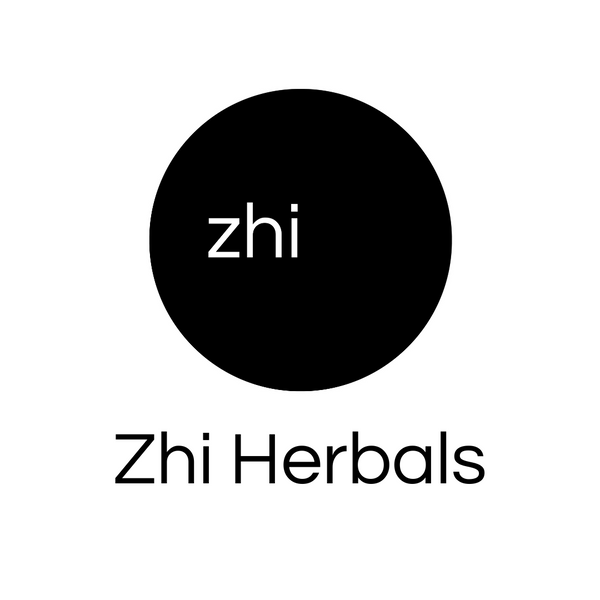
Free Herbalism Education
Share
The Best Free and Low-Cost Education Options for Aspiring Herbalists In Canada
There are a great number of options available for aspiring herbalists in Canada who want to access free or low-cost education and learning experiences. If you’re just getting started, we congratulate you, and offer you our best suggestions for how you can expand your knowledge and become more involved in the Canadian herbal community. Here are some ideas for herbalists who are just getting started and looking for learning opportunities:
1. Apprenticeship Programs
Some herbalists and organizations offer apprenticeship programs where you can learn herbal medicine through hands-on training. Experience is one of the best ways to learn, and these programs are often available for free (or in exchange for your hard work). Here are a few possibilities to consider:
Herbalist Mentorships
Reach out to experienced herbalists in your area and inquire about the possibility of apprenticeships or mentorship programs they may offer. Could you shadow their workday? Many herbalists are willing to share their knowledge and skills with eager learners.
Herbal Farms or Gardens
Look for organic herb farms, community gardens, or herb nurseries that may offer apprenticeship programs or opportunities to work in exchange for educational experiences. This allows you to gain hands-on experience in cultivating and harvesting herbs.
Herbal Product Companies
Some herbal product manufacturers or companies that produce herbal remedies, teas, or skincare products may offer apprenticeships or internships to individuals interested in learning the entire process of herbal product making.
Herb Schools and Institutes
There may be herbal schools, institutes, or educational organizations in your area that offer apprenticeship programs as part of their curriculum. Although they do often charge tuition fees, these programs can provide a combination of classroom learning and practical experience that you won’t find elsewhere.
Indigenous Herbal Knowledge
Explore opportunities to apprentice with Indigenous elders, healers, or communities that possess traditional herbal knowledge. This can provide a unique and culturally rich learning experience.
2. Community Colleges and Vocational Schools
Community colleges and vocational schools in Canada often provide programs, courses, or workshops related to herbalism and alternative medicine. Most schools do charge tuition, however, these institutions may also offer scholarships or grants for students interested in pursuing studies in natural health fields.
Classroom Offerings
Community colleges and vocational schools can offer a range of programs related to alternative medicine, including herbalism. These programs may be certificate or diploma programs, providing comprehensive training in herbal medicine, plant identification, herbal preparations, and holistic health practices. Some colleges may also offer specific courses in herbalism as part of their health or wellness programs.
Practical Training
These programs often include hands-on training in growing, harvesting, and processing herbal plants. Students may have the opportunity to work in herb gardens or participate in field trips to learn about plant identification, cultivation techniques, and sustainability practices.
To explore specific offerings and scholarship opportunities, it is recommended to visit the websites or contact the admissions offices of local community colleges and vocational schools in your area. Later in this article, we list some of the best resources for accessing grants, scholarships, and bursaries.
3. Indigenous Healers
Contact local Indigenous healers or organizations that focus on traditional herbal medicine. They may know about apprenticeship programs, educational workshops, or funding opportunities to support aspiring herbalists from Indigenous communities.
To learn from Indigenous healers as an aspiring herbalist in Canada, there are several options available. However, it's important to approach these opportunities with respect, cultural sensitivity, and a willingness to learn and support Indigenous communities. Here are some avenues to consider:
Indigenous Community-Based Workshops and Events
Keep an eye out for workshops, events, or gatherings organized by Indigenous communities or organizations. These may include teachings on traditional healing practices, including the use of medicinal plants. Attend these events to observe, learn, and connect with Indigenous healers.
Indigenous Healing Centers or Institutes
Research Indigenous healing centers or institutes in your region that focus on traditional healing practices. Some of these institutions may offer educational programs, workshops, or apprenticeships that allow individuals to learn directly from Indigenous healers. Reach out to them to inquire about any available opportunities.
Networking and Collaboration
Attend Indigenous-focused conferences, Indigenous wellness gatherings, or cultural events where you can meet Indigenous healers or practitioners. Establishing connections through respectful networking can lead to potential learning opportunities or mentorship arrangements.
Indigenous Language Preservation Efforts
Some Indigenous language revitalization programs or organizations may offer courses or workshops on traditional healing practices as part of their language preservation efforts. These programs may integrate the knowledge of medicinal plants within language teachings.
Elder Support Programs
Some Indigenous communities have elder support programs that facilitate interactions and knowledge sharing between youth or individuals interested in traditional practices and Indigenous healers or elders. Engaging with these programs can provide opportunities to learn from Indigenous healers while supporting elders in your community.
4. Non-profit Organizations
Explore non-profit organizations dedicated to herbal medicine in Canada. Some of these organizations offer volunteer opportunities where you have the chance to learn on the job.
Natural Health Associations
Joining non-profit natural health associations, such as your provincial herbalist association, may provide access to educational resources. These associations often publish newsletters, articles, and online libraries with valuable information on herbalism. They may also host webinars or workshops at affordable or no cost for their members.
Community Gardens or Local Herbal Initiatives
Some non-profit organizations or community gardens focus on promoting herbalism and may offer workshops, presentations, or tours to educate individuals about herbs and their uses. Keep an eye out for events organized by these initiatives, as they may provide free educational opportunities.
Public Libraries
Check your local library's resources for books, magazines, or online databases that cover herbalism and natural medicine. Many libraries offer free access to a wide range of educational materials related to herbalism, botany, plant identification, and alternative healing practices.
Community Centers and Health Clinics
Non-profit community centers or health clinics occasionally host workshops, lectures, or classes on herbal medicine. These events may be free or available at a nominal cost, providing opportunities to learn from herbalists or healthcare practitioners.
5. Scholarships and Bursaries
Various organizations, universities, and colleges in Canada provide scholarships and bursaries for students pursuing studies in complementary and alternative medicine, including herbalism. If you have a school in mind, we recommend reaching out to them directly to inquire about grants and scholarships available.
Some of the most popular organizations offering financial assistance for herbal education include the following:
- Aboriginal Learning Links: Scholarships and Bursaries available for BC First Nations students, and information on applying for band sponsorship.
-
Alberta Herbalists Association:
The Alberta Herbalists Association offers bursaries for herbal students who reside in Alberta and meet certain eligibility requirements. - Canadian Mental Health Association: Scholarships and bursaries available for students with disabilities.
-
Disability Awards:
For students with disabilities across Canada, both scholarships and bursaries are available and can be found via the Disability Awards website. Many options are available, and some are specific to health studies. - Education Planner BC: A database of scholarships and bursaries available for students across Canada. This website is not specific to herbalism and natural health, but it does include some great resources, as well as tips for writing scholarship applications.
- Indspire: Indspire provides bursaries and scholarships for Indigenous students attending post-secondary programs.
-
Student Aid BC:
Grants, scholarship options, and other types of non-repayable financial support available for both full and part time students.
6. Online Resources
Look for online educational platforms or websites that offer free or low-cost courses on herbalism. Blogs, e-books, and videos can all be effective and free ways to learn about herbal medicine from the comfort of your home.
